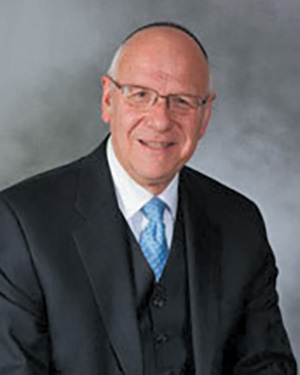
Parshat Lech Lecha
This week’s haftarah, like the two that preceded it, is found in Sefer Yeshayahu. However, unlike those selections whose messages focus on the moral decay of humanity (Bereishit) or upon God’s destruction of the wicked in order to rebuild the world (Noach), this haftarah is one of optimism and hope. The selection is taken from the end of the 40th and from the 41st chapters of Yeshayahu, with the previous section having been read on Shabbat Nachamu. This latter part of the 40th chapter picks up from where the earlier haftarah left off and is read this week together with the perek that follows. The reason why I emphasize the connection is because, as Rav Moshe Lichtenstein writes, we cannot fully understand the significance of this haftarah and its connection to our parsha without studying the esukim that precede it, those that were read on Shabbat Nachamu.
These introductory verses focus, primarily, on the great distance that separates God and mortal man, i.e., between the infinite and the finite. Rav Lichtenstein points out that Yeshayahu contrasts the transitory nature of man with the endless existence of the Divine. He speaks of the omniscience of God as opposed to the limits of human knowledge. He reminds us of the boundless power of the Almighty as compared to our meager abilities and the universal rule of the Creator versus the limited control of a mortal king.
Given these comparisons, it is understandable for one to feel so humbled that he may react by submitting to the seeming inevitable. If Hashem is so much greater, how can we hope to reach Him? How can we hope to be redeemed if He is so far from Him? How can we even think of influencing Him? Indeed, there are religions that believe precisely that, claiming that all mortals are predestined by God and their fate can never be changed, for man can never hope to affect God’s decisions or move Him to change His plans.
We completely reject such an approach. This haftarah tells us to see the greatness of Hashem not as a reason that would prevent our redemption but as a quality that would guarantee it! God is all-powerful and therefore is capable of redeeming His people whenever He chooses. It is for this reason that the selection begins with God’s question: “Jacob, why do you say…my way is hidden from Hashem and my cause has passed by my God?” and then proceeds to remind the people of Hashem’s great powers.
This is the message of our haftarah, and it is Avraham Avinu who showed us the way. Whether his (unsuccessful) pleas for the doomed cities or his (successful) prayers for a child, Avraham taught us that we can impact the Almighty. He understood the great abilities of Hashem but didn’t take that as an obstacle to questioning Him or doubting the promises God made to Him.
For all of God’s powers and qualities, perhaps His greatest is His humility. He loves us and He desires our prayers. And Avraham was the first to teach us that important lesson.
By Rabbi Neil N. Winkler
Rabbi Neil Winkler is the rabbi emeritus of the Young Israel of Fort Lee and now lives in Israel.













